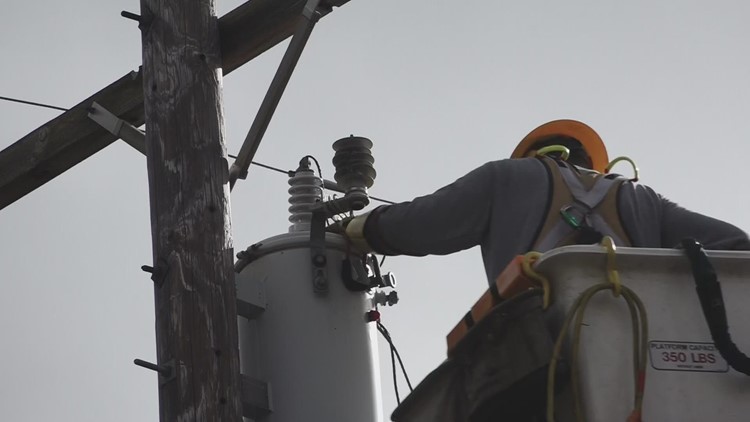AUGUSTA, Maine — Fishers, farmers, and foresters are increasingly finding agreement about the problems they face or will face because of climate change.
Despite that, there is still a political divide over the issue, with Democrats generally agreeing climate change is a critical problem and many Republicans expressing skepticism.
But the current energy price crisis could lead to changes both sides can support.
That was evident at a climate conference Friday in Augusta, sponsored by the Mills Administration as part of its ongoing work on climate change policies.
From the governor to top staff members and local representatives for communities, there was talk of dealing with the high energy price in a way that will also help the climate battle.
"I think this is causing a recognition that the lack of energy independence in Maine is a challenge, and also being so reliant on fossil fuels isn't good for [the] climate," Hannah Pingree, co-chair of Maine's Climate Task Force and a top staffer for Mills, said.
Pingree echoed the governor that more of Maine could switch to electric-powered heat pumps as a replacement for heating oil and propane.
"I think it is causing people to understand there is a way to come up with a more sustainable way to heat homes that will save money and be good for the environment," she said.
That was backed up by Michael Stoddard of Efficiency Maine, who announced a new, $8 million grant program to help some smaller rural schools change to heat pumps. Details of the plan will be rolled out Monday. Stoddard said it wouldn't be enough money for every school to make the change, but it would be a start.
Like Pingree, he said it would help the climate, help the schools, and benefit local taxpayers by saving money.
"They [schools] have spaces they like to heat and cool, and heat pumps do a great job of that and do it more cheaply than the current systems most schools are using. So it's a money saver. It will make them more comfortable in those spaces," Stoddard said.
Stoddard said they estimate the cost for the schools converting to heat pumps would range from $100,000 to $250,000, depending on the size of the building. The state program is aimed at buildings of 50,000 square feet or smaller. The state will cover 60 percent of the cost for those schools that are selected, with the local communities covering the remainder.
A similar program for municipal buildings will be announced in August.
As for politics, that debate isn't likely to go away. Mills has made fighting climate change one of the top issues and is expected to stress that in this year's campaign.
"Maine is on track to meet our renewable energy portfolio standard target of 80 percent clean energy by 2030," Mills told the audience, "The most aggressive of any New England state, with 100 percent by 2050."
When asked about fighting climate change during a GOP event in Lewiston, former Gov. Paul LePage, now the Republican candidate opposing Mills, had a short answer.
"It's a priority, but it's not a religion," the candidate said.



